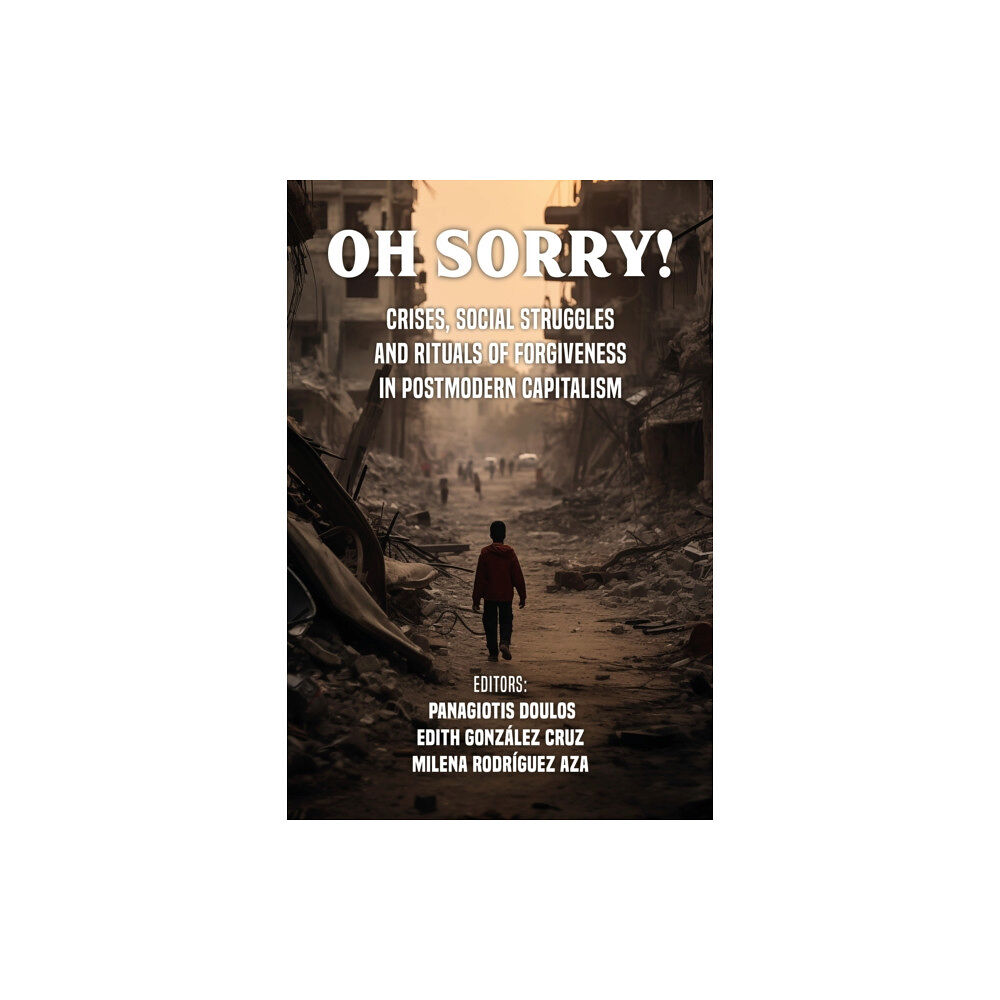- Hem
- Böcker
- Kurslitteratur
- Samhälle & Politik
- Oh Sorry! (häftad, eng)

Oh Sorry! (häftad, eng)
In recent years, the apology has become an important feature of politics. States are asking their own citizens or the citizens of other coun...
299 kr
329 kr
Bara 5 kvar
Skickas inom 2-3 vardagar
Fri frakt över 299:-
Snabb leverans
Alltid låga priser
Produktbeskrivning
In recent years, the apology has become an important feature of politics. States are asking their own citizens or the citizens of other countries for forgiveness. ''Oh, sorry that we rounded up people in West Africa, shipped them across the Atlantic and sold them as slaves''.
''Oh, sorry that we convicted homosexuals as criminals.'' ''Oh, sorry that we burnt so many women as witches.'' Sometimes the issue arises as a demand for an apology. Thus, Lopez Obrador, the Mexican president, has asked the Spanish government to apologise for the conquista.
The zapatistas, on the other hand, said of their recent trip to Spain that they were not going to ask for an apology. How do we understand the rise of the public apology and how do we relate to it politically? In a moment of severe social crisis, the institutional acts of apology and forgiveness could be theorised as a specific type of ritual which aims to respond to public anger and to reestablish social cohesion.
In doing so, the state legitimises itself as the guardian of society as a Whole, and capitalism as the only alternative. We consider that in times of capitalist crisis, class struggle becomes a metonym of revenge. Thus, the act of forgiveness - as a secularised ritual, based on reason - allows the violence of social antagonism to be regulated and reconfigured in order to re-establish the Law and Order through the discourse of reconciliation, and renunciation of revenge as a condition for development.
The rituals of forgiveness are being presented as crucial steps for pacifying social tensions and establishing a new social contract, leaving behind the bloody past and rewriting historical memory for the sake of the common future. Violence, anger, guilt, memory, the attempt to pacify discontent and secure the continuity of violence: all of these come into play in the rise of the ''Oh, Sorry!''.
Our project is to understand these rituals of forgiveness in different sociocultural contexts around the world, and to discuss why at this historical moment the states are proceeding in this way, and what is the relationship with capitalist crisis and social struggle. In other words, we launch this invitation to think about these issues and contribute to the construction of a book with these reflections.
''Oh, sorry that we convicted homosexuals as criminals.'' ''Oh, sorry that we burnt so many women as witches.'' Sometimes the issue arises as a demand for an apology. Thus, Lopez Obrador, the Mexican president, has asked the Spanish government to apologise for the conquista.
The zapatistas, on the other hand, said of their recent trip to Spain that they were not going to ask for an apology. How do we understand the rise of the public apology and how do we relate to it politically? In a moment of severe social crisis, the institutional acts of apology and forgiveness could be theorised as a specific type of ritual which aims to respond to public anger and to reestablish social cohesion.
In doing so, the state legitimises itself as the guardian of society as a Whole, and capitalism as the only alternative. We consider that in times of capitalist crisis, class struggle becomes a metonym of revenge. Thus, the act of forgiveness - as a secularised ritual, based on reason - allows the violence of social antagonism to be regulated and reconfigured in order to re-establish the Law and Order through the discourse of reconciliation, and renunciation of revenge as a condition for development.
The rituals of forgiveness are being presented as crucial steps for pacifying social tensions and establishing a new social contract, leaving behind the bloody past and rewriting historical memory for the sake of the common future. Violence, anger, guilt, memory, the attempt to pacify discontent and secure the continuity of violence: all of these come into play in the rise of the ''Oh, Sorry!''.
Our project is to understand these rituals of forgiveness in different sociocultural contexts around the world, and to discuss why at this historical moment the states are proceeding in this way, and what is the relationship with capitalist crisis and social struggle. In other words, we launch this invitation to think about these issues and contribute to the construction of a book with these reflections.
| Format | Häftad |
| Omfång | 200 sidor |
| Språk | Engelska |
| Förlag | Daraja Press |
| Utgivningsdatum | 2024-07-18 |
| ISBN | 9781990263934 |
Specifikation
Böcker
- Format Häftad
- Antal sidor 200
- Språk Engelska
- Förlag Daraja Press
- Utgivningsdatum 2024-07-18
- ISBN 9781990263934
Leverans
Vi erbjuder flera smidiga leveransalternativ beroende på ditt postnummer, såsom Budbee Box, Early Bird, Instabox och DB Schenker. Vid köp över 299 kr är leveransen kostnadsfri, annars tillkommer en fraktavgift från 29 kr. Välj det alternativ som passar dig bäst för en bekväm leverans.
Betalning
Du kan betala tryggt och enkelt via Avarda med flera alternativ: Swish för snabb betalning, kortbetalning med VISA eller MasterCard, faktura med 30 dagars betalningstid, eller konto för flexibel delbetalning.
Specifikation
Böcker
- Format Häftad
- Antal sidor 200
- Språk Engelska
- Förlag Daraja Press
- Utgivningsdatum 2024-07-18
- ISBN 9781990263934
